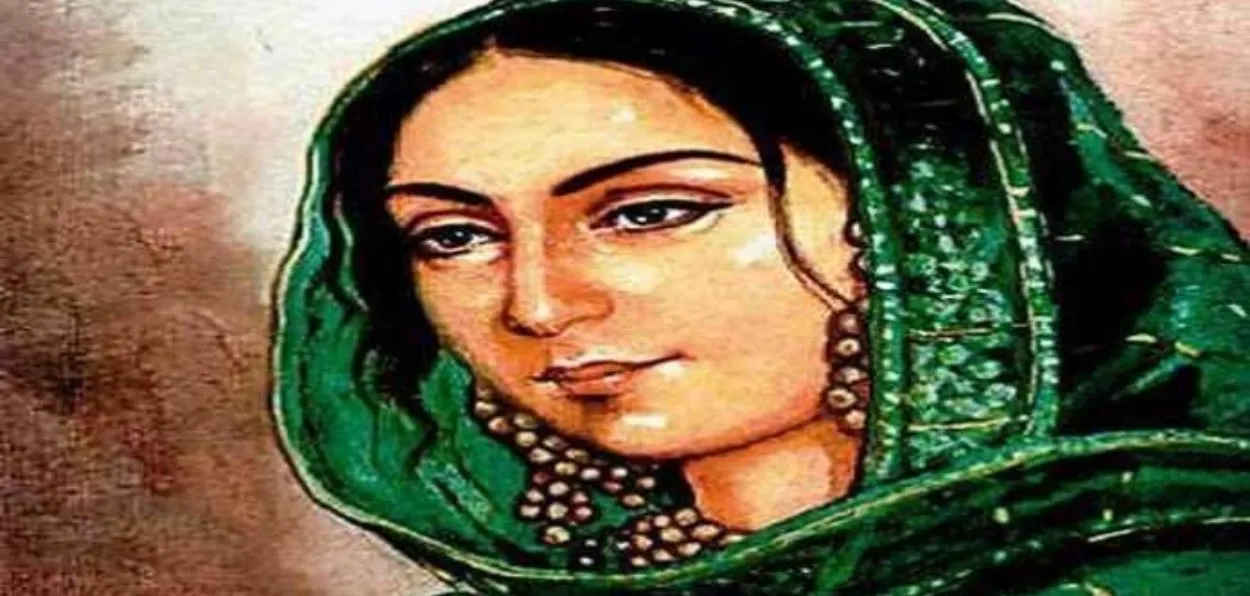
Saquib Salim
Begum Hazrat Mahal, warrior queen from Lucknow, in a proclamation to Zamindars of Awadh blamed the English rulers for creating caste inequalities among the Indians. Under the seal of her minor son Brijis Qadr, Begum pointed out that Indian rulers treated people of all castes among Muslims as well as Hindus with honour. It said, “all persons of a lower order such as Sweeper, Ghumar, Dhanook, or Passee, can claim equality with them (Brahmins, Kshatriyas, Vaishyas, Kayasths, Mughals, Syeds, Pathans and Sheikhs)”. She blamed the foreign rulers for tampering with the system and manufacturing artificial inequalities in society.
The proclamation claimed that women of trading communities (Baniyas) were being violated by the English and their properties were looted. It was pointed out that the profession of watching towns and villages had been taken from the Pasis, thus forcing them into destitution. Begum urged Pasis to use their arms training to “plunder the English, and their dependents, commit theft and gang robberies in their camps, and disturb their rest”.
Begum is remembered as a military leader for leading the Indian revolutionaries during 1857. People admire, and rightly so, her military skills but tend to overlook her foresight in administration and public policies. The fact that she could sense the caste problem being engineered by the English in 1857, is a testament to her understanding of politics and society.
On 1 November 1858, Queen Victoria took over the rule of India from the English East India Company with a public proclamation. The educated class of Indians kept their faith in this proclamation and hence English justice till 1947. Indian National Congress and other political outfits would try to work within the constitutional framework provided by this proclamation for 90 years to come. But, Begum foresaw the real intent of the crown. She warned Indians that the British Crown was no different than the English East India Company.
The proclamation asked the Indian revolutionaries to surrender with a promise that they would not be punished. Begum issued a counter proclamation which said, “We now issue a distinct order, and one that may be trusted that all subjects who may have foolishly presented themselves as heads of villages to the English, shall, before the 1st of January next, present themselves, in our camp. Without doubt, their faults shall be forgiven then, and they shall be treated according to their merits. To believe in this proclamation it is only necessary to remember that Hindoostanee rulers are altogether kind and merciful. Thousands have seen this, and millions have heard it. No one has ever seen in a dream that the English forgave an offense.”
In this proclamation, she warned against mixing religion and politics. Begum could read between the lines of the Queen’s proclamation. She said, “In the proclamation, it is written, that the Christian religion is true, but that no other creed will suffer oppression, and that the laws will be observed towards all. What has the administration of justice to do with the truth or falsehood of religion ?” No wonder, the English policies ended up dividing India along religious lines.
Unequal treatment in jobs was an issue raised decades later by Indian intellectual leaders. Begum did forecast, “It is worthy of a little reflection, that they have promised no better employment for Hindoostanees than making roads and digging canals. If people cannot see clearly what this means, there is no help for them.”
Apart from leading one of the longest battles during the First War of National Independence in 1857, Begum proved herself to be a great stateswoman, politician, and political thinker. Sir W Russell, who led the English Army against her in Lucknow, wrote, “The Begum (Hazrat Mahal) exhibits great energy and ability…. The Begum declares undying war against us. It appears from the energetic characters of these Ranees and Begums that they acquire in their Zenanas and harems a considerable amount of actual mental power and, at all events, become able intrigantes. Their contests for the ascendency over the minds of men give vigour and acuteness to their intellect."
